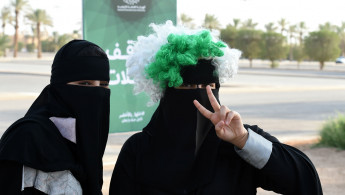Saudi cleric says women in employment are 'earning a living from showing off breasts'
A Saudi cleric has condemned women who work for "earning a living through showing off their breasts", sparking anger and an official investigation.
The cleric's sermon went viral after a woman posted a video of herself listening to the religious lecture on Twitter.
"What we need are decent women who sacrifice wealth and opulence for the sake of decency and honour," the cleric, who has not been named in media reports, can be heard saying.
"We need women who pay no heed of the calls from those who want to misguide them into becoming women who work and mix with men; because they know that a free woman would rather die than make a living through her breasts," he adds.
The clip of the sermon has caused much debate in the conservative kingdom, which has recently been attempting to expand the role of women in the workforce.
Commenting on the controversy, the Saudi Islamic affairs minister said this week that he has ordered a probe into the incident.
"Appropriate measures will be taken against who made this sermon and against who authorised this place without permission," Sheikh Abdullatif Al al-Sheikh said.
Restrictions the guardianship system has long imposed on women's employment have been loosened as Saudi Arabia tries to wean itself from its dependence on oil.
Recently announced reforms cover employment regulations that are expected to further expand job opportunities for women.
Crown Prince Mohammed bin Salman has promoted an economic plan that aims to boost the female quota in the workplace from 22 to 30 percent by 2030.
The kingdom last year ended a decades-long ban on women driving - a move partly aimed at allowing women to drive themselves to work without using costly chauffeurs.
Analysts have warned that the reforms are merely cosmetic changes, allowing the kingdom to attract positive international publicity, while it continues its crackdown on activists - including women's rights activists.





 Follow the Middle East's top stories in English at The New Arab on Google News
Follow the Middle East's top stories in English at The New Arab on Google News


